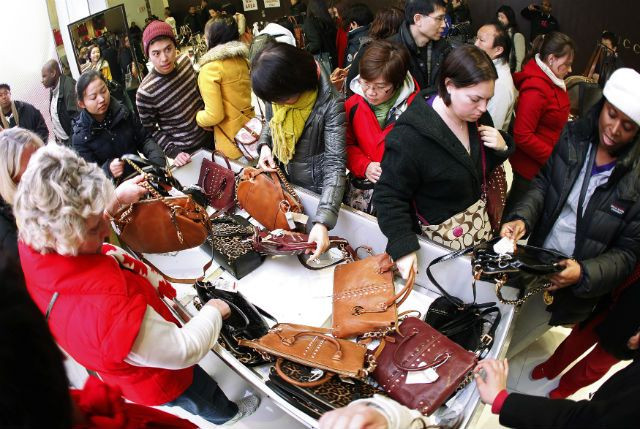
As the U.S. holiday season winds down, retailers are left to hope that post-Christmas sales can help salvage their worst performance since 2008, preliminary data showed.
Holiday-related sales rose 0.7 percent from October 28 through December 24, compared with a 2 percent increase last year, according to data from MasterCard Advisors SpendingPulse.
The preliminary estimate from SpendingPulse is in line with other estimates showing weak growth during the holiday season, when retailers can book about 30 percent of annual sales and in many cases half of their profits.
Research firm ShopperTrak said last week it expected an increase of 2.5 percent, rather than 3.3 percent. And on Tuesday, the International Council of Shopping Centers and Goldman Sachs Weekly Chain Store Sales Index said sales rose only 0.7 percent in the week ended Saturday.
The latest holiday season sales would be the worst performance since 2008, during the last recession.
"The broad brush was Christmas wasn't all that merry for retailers, and you have to ask what those margins look like if the top line didn't meet their expectations. So it could be a very unmerry Christmas for retailers," said Kim Forrest, senior equity research analyst at Fort Pitt Capital Group in Pittsburgh.
The Mid-Atlantic showed the worst performance, with a 3.9 percent decline, as sales in early November were disrupted by Superstorm Sandy, which hit the densely populated region in late October.
Sales recovered in the second part of November, with early hours and promotions helping drive traffic during the Black Friday weekend, analysts said.
But there was a deep lull in early December as a winter storm in parts of the United States may have limited sales, said Michael McNamara, vice president of research and analysis at MasterCard SpendingPulse.
SpendingPulse estimated the 0.7 percent increase in sales covered apparel, electronics, luxury goods, online and furnishings across all payment types, including credit cards, cash and checks.
Aside from the weather, some analysts also said shoppers may have curbed spending due to concerns about whether Washington will reach an agreement to avert the "fiscal cliff" of tax hikes and spending cuts that take effect in the new year.
"Who wants credit card debt in January when there will be 2 percent less in the check plus a year of higher tax rates on stale incomes," Brian Sozzi, chief equities analyst at NBG Productions, said in a note to clients.
© Thomson Reuters.




